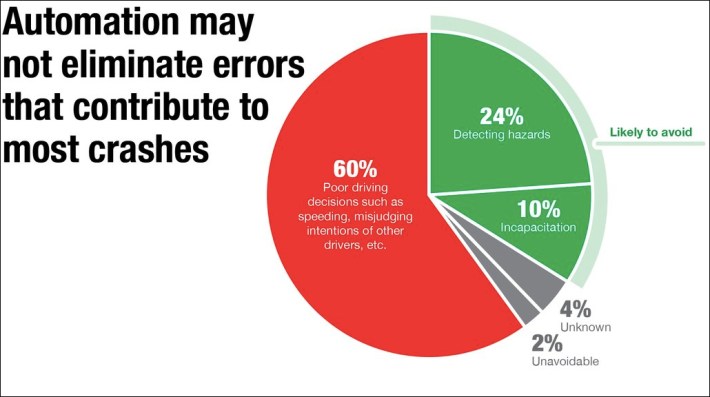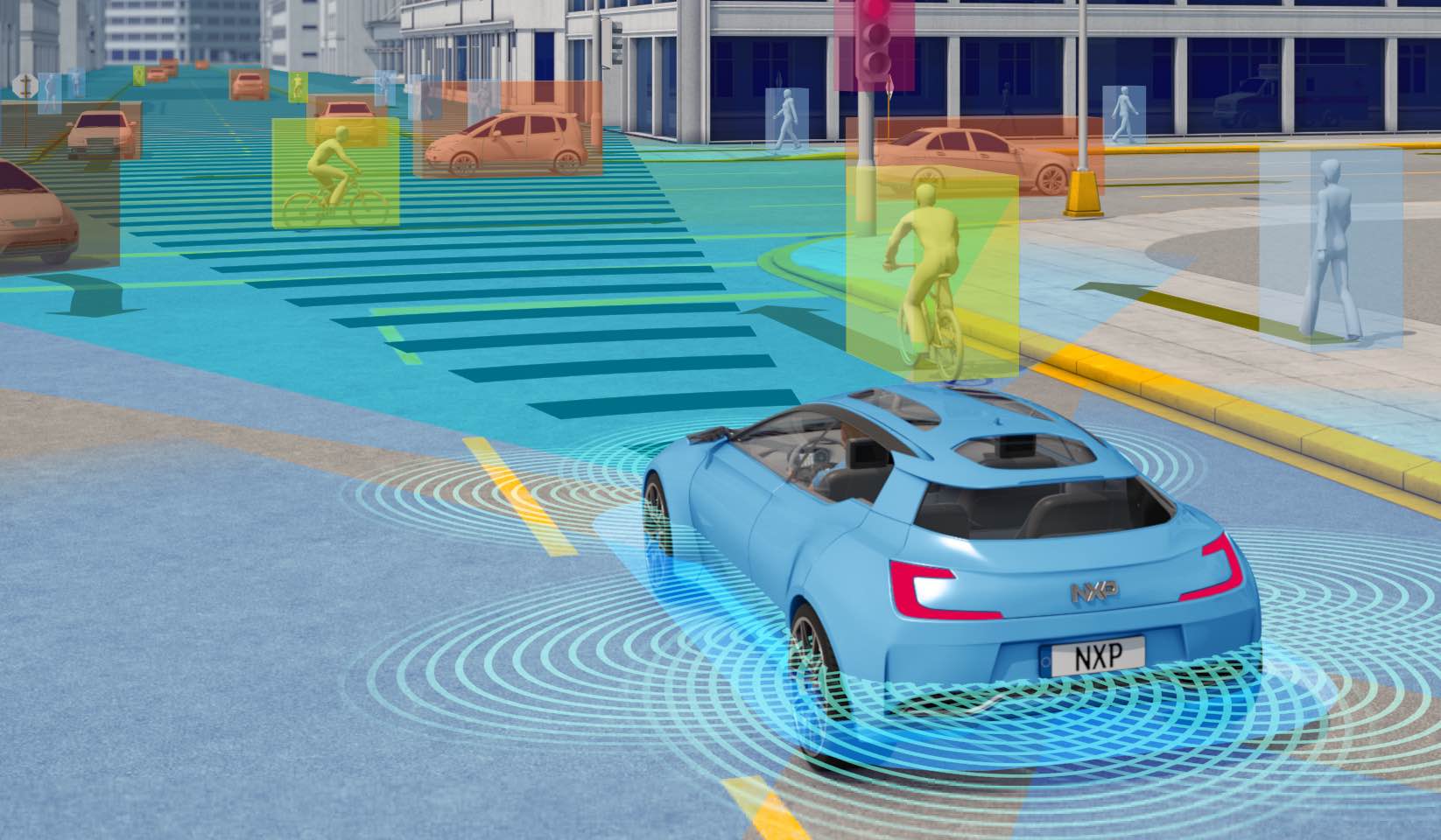Hate to say we told you so, but autonomous cars will not be an automatic lifesaver.
Self-driving cars will only prevent about one-third of all vehicle crashes if they drive like people, according to a recent study from the Insurance Institute for Highway Safety, further proving that automatic cars will not solve road carnage.
“It’s likely that fully self-driving cars will eventually identify hazards better than people, but we found that this alone would not prevent the bulk of crashes,” said Jessica Cicchino, the Institute’s vice president.
Institute researchers studied more than 5,000 crashes reported by police from the National Motor Vehicle Causation Survey and separated “driver-related factors that contributed to the crashes” into the following categories:
- “Sensing and perceiving” errors included things like driver distraction, impeded visibility and failing to recognize hazards before it was too late.
- “Predicting” errors occurred when drivers misjudged a gap in traffic, incorrectly estimated how fast another vehicle was going or made an incorrect assumption about what another road user was going to do.
- “Planning and deciding” errors included driving too quickly or too slowly for the road conditions, driving aggressively or leaving too little following distance from the vehicle ahead.
- “Execution and performance” errors included inadequate or incorrect evasive maneuvers, overcompensation and other mistakes in controlling the vehicle.
- “Incapacitation” involved impairment due to alcohol or drug use, medical problems or falling asleep at the wheel.

The results?
Researchers found that only about 34 percent of crashes would almost certainly have been avoided by a driverless car. In other words, car-induced carnage will continue if self-driving cars replicate human drivers — and the nation got a taste of that in 2018, when a self-driving Uber mowed down a pedestrian in Tempe, Arizona.
“Our analysis shows that it will be crucial for designers to prioritize safety over rider preferences if autonomous vehicles are to live up to their promise to be safer than human drivers,” said Alexandra Mueller, also with the Insurance Institute.
Or, as Car and Driver put it: "While self-driving vehicles would be better at detecting the world around them thanks to a suite of sensors that produce a 360-degree worldview, they'll still get into crashes. That's even if all the vehicles on the road were autonomous."
If automatic vehicles are to become the norm on the road, they will “need not only to obey traffic laws, but also to adapt to road conditions and implement driving strategies that account for uncertainty about what other road users will do, such as driving more slowly than a human driver would in areas with high pedestrian traffic or in low-visibility conditions,” said the study.
Indeed, the uncertainty remains in the safety of self-driving cars.






